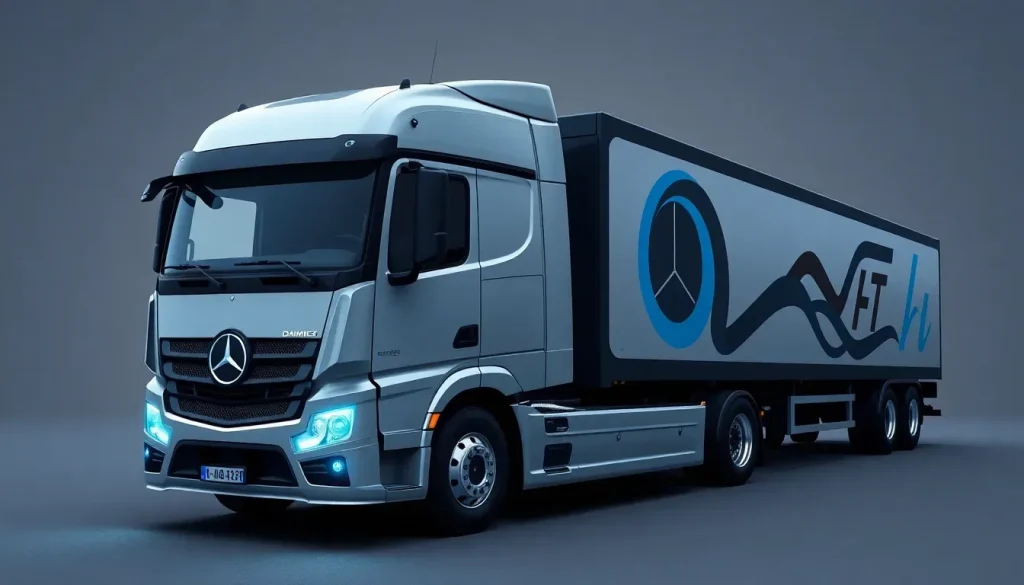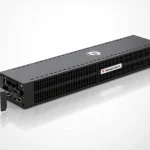Daimler Truck's Hydrogen Trucks Ready After Alps Testing

The transition towards sustainable transportation is a critical concern in today's world, and one of the most promising technologies is hydrogen fuel cell vehicles. Daimler Truck has recently made significant strides in this area, showcasing the potential of hydrogen-powered trucks through rigorous testing. Let's delve into the details of these advancements and what they mean for the future of heavy-duty transportation.
Daimler Truck's Successful Testing of Hydrogen Trucks in the Swiss Alps
After a successful winter testing phase, Daimler Truck has returned to the Swiss Alps to conduct summer trials with four advanced prototypes of the upcoming Mercedes-Benz GenH2 trucks. This initiative marks a significant step in validating the practicality of hydrogen-powered heavy-duty vehicles.
The Valais region, known for its challenging mountain passes ranging from 600 to 2,478 meters in altitude, provided the perfect environment for these tests. The combination of high summer temperatures, exceeding 35 degrees Celsius, and the thin mountain air posed challenges that tested the vehicles' cooling performance and thermal management systems.
The primary goal of these trials was to ensure reliable operation under extreme conditions and to gather essential data for the continued development and future deployment of these vehicles in everyday operations.
Key Aspects of the Testing Process
During the testing phase, the development team focused on several critical areas:
- Vehicle behavior and driving dynamics
- Performance of the electric drive system
- Thermal management efficiency
- Interaction between the fuel cell, battery, and tank systems under real load peaks
Another crucial area of interest was the development of the Predictive Powertrain Control (PPC) system for fuel cell trucks. This innovative system utilizes geographic data to anticipate upcoming gradients several kilometers ahead, allowing the vehicle to proactively adjust its power output. This capability ensures optimal performance during climbs, enhancing overall efficiency, particularly in the demanding alpine routes.
Hydrogen Refueling: A Critical Component
The trucks were refueled with liquid hydrogen using a mobile refueling station provided by Air Products (standard sLH2), set up at the testing base in Valais. This operational setup highlights the growing infrastructure needed to support hydrogen-powered vehicles.
Over several weeks, the test vehicles covered more than 10,000 kilometers and ascended a total of 146,000 meters, demonstrating the advanced maturity and performance capabilities of the next generation of fuel cell trucks. The data collected during these extreme tests will significantly inform the ongoing development process.
Future Steps for Hydrogen Truck Production
Following the successful completion of these extreme tests, the systems showcased stable and reliable performance, even in the harsh conditions of the Alps. The insights gained from this testing will directly influence future designs and engineering decisions as the vehicles move closer to mass production readiness.
The next phase involves manufacturing a small series of 100 hydrogen trucks at the Mercedes-Benz plant in Wörth, Germany. These units are expected to enter real-world operations with various customers by the end of 2026, marking a significant milestone in the commercial rollout of hydrogen technology in heavy-duty transport.
The Broader Impact of Hydrogen Technology in Transportation
The industrial-scale implementation of fuel cell technology is anticipated to commence in the early 2030s, primarily focused on Europe. This timeline suggests an exciting future where hydrogen trucks could significantly reduce greenhouse gas emissions in the logistics sector.
Key advantages of hydrogen fuel cell vehicles include:
- Lower emissions compared to traditional diesel trucks
- Potential for faster refueling times compared to battery electric vehicles
- Greater range, making them suitable for long-distance transportation
- Reduction of reliance on fossil fuels, supporting energy diversification
As the global logistics industry faces increasing pressure to cut emissions and operate sustainably, hydrogen technology stands out as a viable solution. It not only addresses environmental concerns but also meets the growing demand for efficient and reliable transportation.
Conclusion: A New Era for Heavy-Duty Trucks
The ongoing developments in hydrogen fuel cell technology showcased by Daimler Truck are paving the way for a revolutionary change in the heavy-duty vehicle market. With rigorous testing, promising prototypes, and a clear production roadmap, the future of hydrogen trucks is not just a vision but an impending reality.
To gain deeper insights into the capabilities of these vehicles, you can watch this video that highlights the successful tests conducted by Daimler Truck:
As the industry moves forward, it is essential to stay informed about advancements in hydrogen technology and its implications for sustainable transportation. The initiatives taken today will shape the future of logistics and contribute significantly to global sustainability efforts.




Leave a Reply